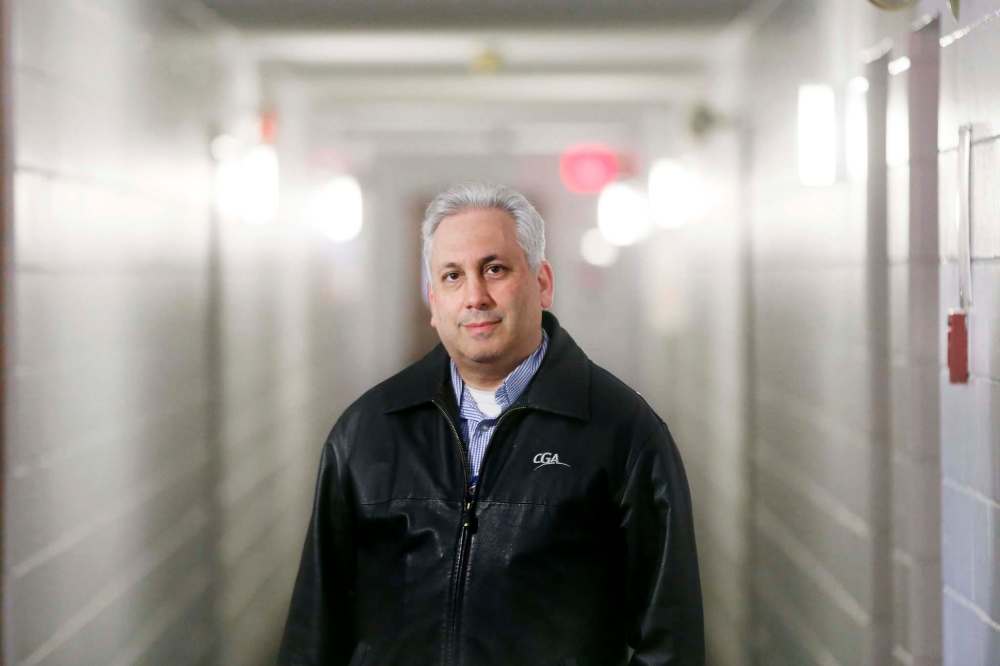Rental market balanced: study
Vacancy rate at optimum 2.9 per cent; good for tenants, landlords
Advertisement
Read this article for free:
or
Already have an account? Log in here »
To continue reading, please subscribe:
Monthly Digital Subscription
$1 per week for 24 weeks*
- Enjoy unlimited reading on winnipegfreepress.com
- Read the E-Edition, our digital replica newspaper
- Access News Break, our award-winning app
- Play interactive puzzles
*Billed as $4.00 plus GST every four weeks. After 24 weeks, price increases to the regular rate of $19.95 plus GST every four weeks. Offer available to new and qualified returning subscribers only. Cancel any time.
Monthly Digital Subscription
$4.99/week*
- Enjoy unlimited reading on winnipegfreepress.com
- Read the E-Edition, our digital replica newspaper
- Access News Break, our award-winning app
- Play interactive puzzles
*Billed as $19.95 plus GST every four weeks. Cancel any time.
To continue reading, please subscribe:
Add Free Press access to your Brandon Sun subscription for only an additional
$1 for the first 4 weeks*
*Your next subscription payment will increase by $1.00 and you will be charged $16.99 plus GST for four weeks. After four weeks, your payment will increase to $23.99 plus GST every four weeks.
Read unlimited articles for free today:
or
Already have an account? Log in here »
Hey there, time traveller!
This article was published 03/12/2018 (2606 days ago), so information in it may no longer be current.
Winnipeg’s rental market is sitting in a sweet spot that equalizes the power dynamic between tenants and landlords, research from the Canadian Mortgage and Housing Corp. shows
The rental property vacancy rate for both Manitoba and Winnipeg is sitting at 2.9 per cent, a modest increase from the previous year where it was at 2.7 (Manitoba) and 2.8 (Winnipeg) per cent respectively.
“I’m not surprised. I expected the vacancy rate would either be unchanged or up very slightly,” said Avrom Charach, a spokesman for the Professional Property Managers Association.

This comes at a time when throughout the rest of the country, the vacancy rate has dropped for a second year in a row, while demand for rental properties has grown faster than supply.
Charach said many economists who study the rental market argue a three per cent vacancy rate is a perfect blance.
“Personally, I like have nothing vacant because it’s good for my company. But economists argue that a three per cent rate creates what they call market equilibrium, where renters and those doing the renting have as much power as each other,” Charach said.
“It creates a situation where there is no imbalance of power.”
Demand for rental housing has continued to grow in Manitoba, but this was offset by a corresponding uptick in supply, which — according to the study — helped push up the vacancy rate slightly.
In addition, the authors of the study suggested modest employment growth in the province and lower net migration gains also affected the rental property vacancy rate.
The average rental vacancy rate in major centres throughout the rest of Canada dropped down to 2.4 per cent this year. In 2017, it sat at three per cent.
If you’re looking to rent in Manitoba, the study said the current average rental unit price is $1,134. Meanwhile, in Winnipeg, it rises to $1,179. Both figures represent a slight increase over the average prices in 2017.
“I think there’s a lot of good quality rental units in the city, particularly a lot of the property managed by larger landlords,” Charach said.
“Due to the rent-control system that’s in place, there can be a disincentive to doing a lot work — especially discretionary work. That means you tend to have smaller buildings managed by mom and pops that have trouble keeping up due to the rent control, but it’s not due to a lack of trying.”
The Canadian Federation of Apartment Associations, which represents owners and managers of rental suites across the country, suggested provinces and cities need to address high development charges and unnecessary delays in planning approvals if they want to combat the low vacancy rate countrywide.
Despite the fact Winnipeg’s market is in a fairly comfortable spot, Charach said he still thinks the city should look towards implementing those measures.
“I’m not doing a lot of development at the moment, but what I do hear from the people who are developing is that we continue to have costly delays.
“We hear concerns over delays in planning approvals from everybody,” Charach said.
“I even see it with renovations. It shouldn’t take you close to two months to get a building permit to rebuild a suite that was destroyed due to a fire.”
ryan.thorpe@freepress.mb.caTwitter: @rk_thorpe

